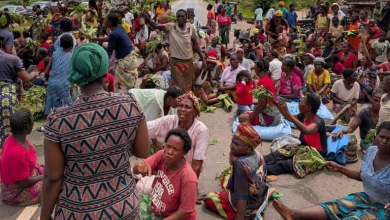Tinubu Allocates ₦2bn, Promises Swift Action for Mokwa Flood Victims
President Tinubu approved ₦2 billion and 20 truckloads of rice for Mokwa flood victims, following a disaster that claimed over 200 lives.
Vice President Shettima announced the aid, including infrastructure repairs. Survivors, however, lament insufficient support, urging better coordination and transparency in relief efforts to rebuild devastated communities effectively.
President Bola Ahmed Tinubu has approved a ₦2 billion relief package and the deployment of 20 truckloads of rice to support victims of the devastating flood that struck Mokwa, a local government area in Niger State, on May 28. The natural disaster has left a trail of destruction, with over 200 lives reportedly lost and many more individuals still unaccounted for.
This humanitarian intervention follows a visit by Vice President Kashim Shettima to the flood-affected communities, where he assessed the damage firsthand and conveyed the federal government’s response to grieving residents. His visit served as both a show of solidarity and an assurance that the federal government is committed to helping survivors rebuild their lives and communities.
According to Niger State Commissioner for Humanitarian Affairs, Ahmad Suleiman, rescue operations are still ongoing, and the final death toll could be higher than the current estimates. Speaking during an interview on Channels Television’s “The Morning Brief,” Suleiman stated, “We have more than 200 corpses so far, but we’re still recovering more.” He added that several residents are still missing, and local authorities are working tirelessly to retrieve the remaining bodies and account for those affected.
Vice President Shettima, during his visit, reiterated President Tinubu’s deep concern about the situation. He announced that the ₦2 billion intervention fund would be channeled primarily toward rebuilding homes that were destroyed in the flooding. In addition to financial aid, the federal government has deployed 20 trucks filled with rice to provide food relief to displaced persons. This provision is aimed at addressing the immediate nutritional needs of thousands of residents who have been forced to flee their homes.
President Tinubu also directed that all damaged bridges within the affected areas be repaired as quickly as possible. Furthermore, he ordered the rehabilitation of drainage systems in Mokwa town to prevent a recurrence of such a disaster in the future. According to Shettima, these infrastructure repairs will begin immediately under the supervision of relevant federal agencies, working in collaboration with state authorities.
However, despite these measures, some survivors have expressed dissatisfaction with the pace and effectiveness of aid distribution. Many victims, currently living in makeshift shelters or overcrowded camps, say they have received little to no assistance. Mama Isah, one of the displaced residents, shared her frustration: “We are 17 people in my household, but we were only given one loaf of bread and some tea. How can that be enough?”
Although the Niger State government has made efforts to complement the federal response, including distributing relief materials and providing a ₦50 million donation through the state’s first lady, many believe that the sheer scale of the disaster has outstripped the local government’s capacity to respond effectively.
Civil society organizations and humanitarian observers have urged for better coordination and transparency in distributing the relief materials to ensure that aid is delivered directly to the most vulnerable victims. There have also been calls for the federal and state governments to establish more sustainable emergency response mechanisms to handle future disasters more efficiently.
As families mourn their losses and try to piece their lives back together, the focus now shifts toward rebuilding the devastated Mokwa communities. The government’s response in the coming weeks will be critical in determining whether recovery efforts will meet the needs of the affected population and prevent similar tragedies in the future.



